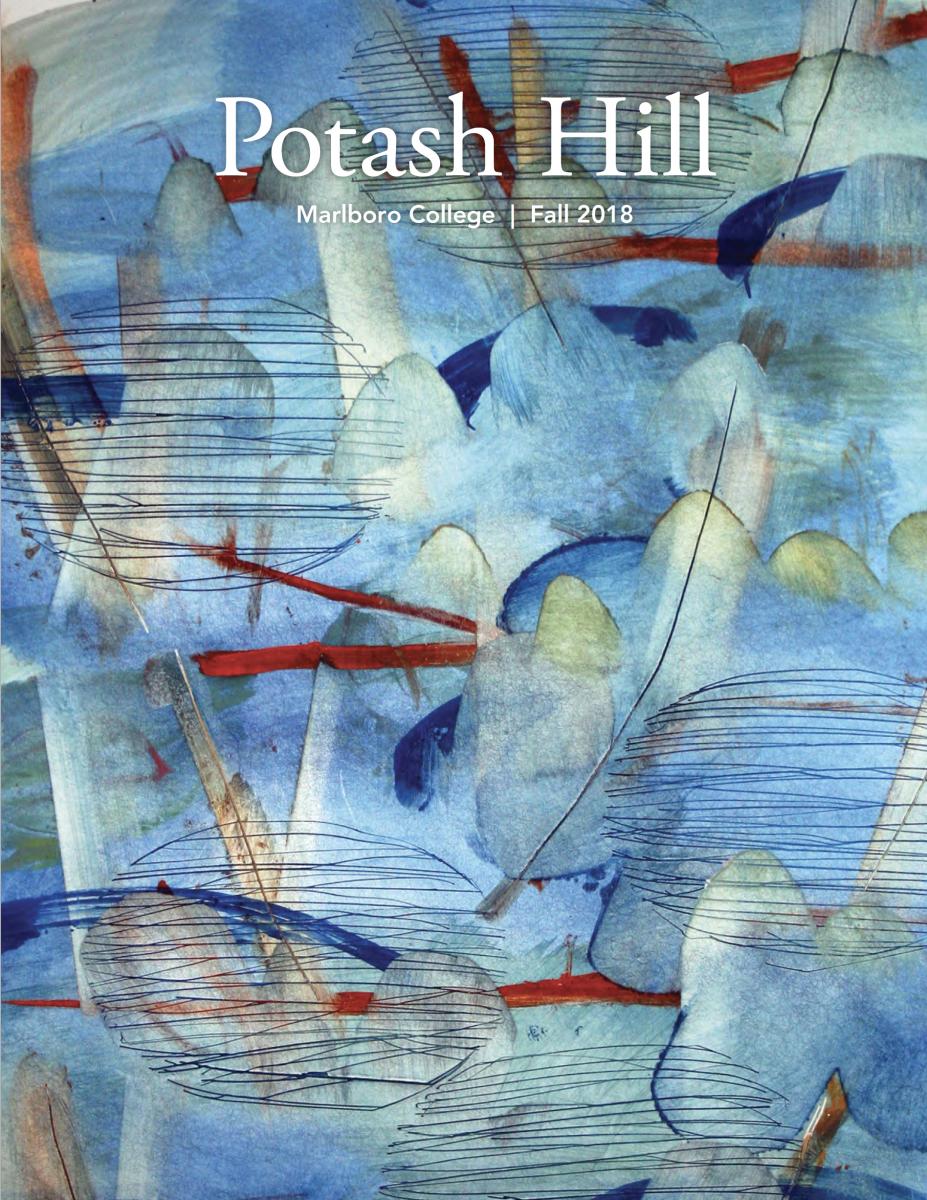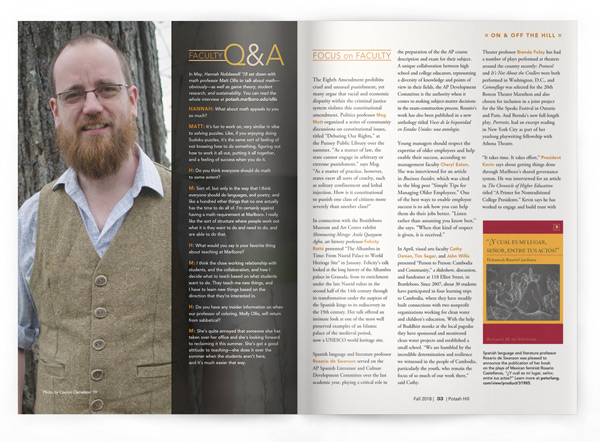
Faculty Q&A
In May, Hannah Noblewolf ’18 sat down with math professor Matt Ollis to talk about math— obviously—as well as game theory, student research, and sustainability. You can read the whole interview.
HANNAH: What about math appeals to you so much?
MATT: It’s fun to work on, very similar in vibe to solving puzzles. Like, if you enjoying doing Sudoku puzzles, it’s the same sort of feeling of not knowing how to do something, figuring out how to work it all out, putting it all together, and a feeling of success when you do it.
H: Do you think everyone should do math to some extent?
M: Sort of, but only in the way that I think everyone should do languages, and poetry, and like a hundred other things that no one actually has the time to do all of. I’m certainly against having a math requirement at Marlboro. I really like the sort of structure where people work out what it is they want to do and need to do, and are able to do that.
H: What would you say is your favorite thing about teaching at Marlboro?
M: I think the close working relationship with students, and the collaboration, and how I decide what to teach based on what students want to do. They teach me new things, and I have to learn new things based on the direction that they’re interested in.
H: Do you have any insider information on when our professor of coloring, Molly Ollis, will return from sabbatical?
M: She’s quite annoyed that someone else has taken over her office and she’s looking forward to reclaiming it this summer. She’s got a good attitude to teaching—she does it over the summer when the students aren’t here, and it’s much easier that way.
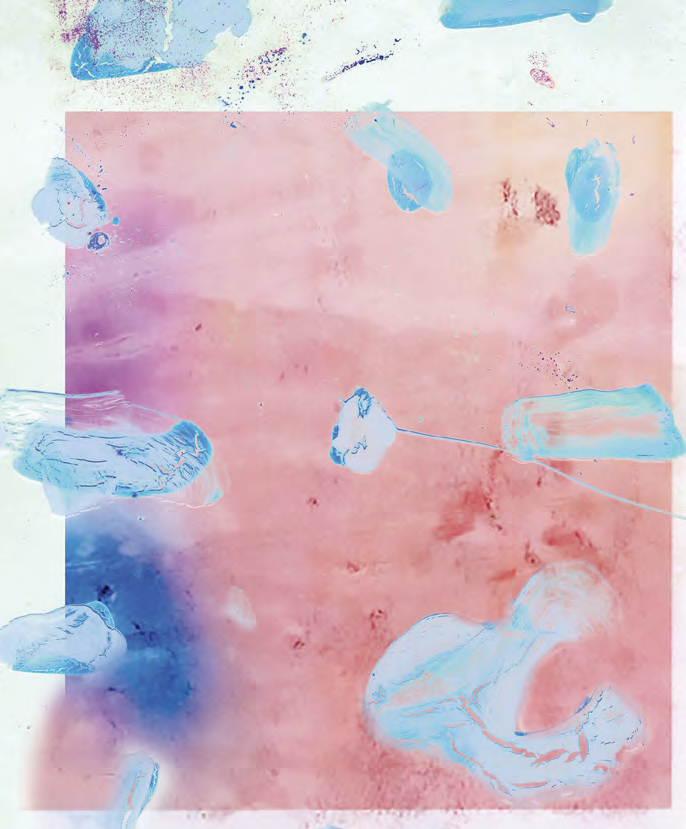 The Eighth Amendment prohibits cruel and unusual punishment, yet many argue that racial and economic disparity within the criminal justice system violates this constitutional amendment. Politics professor Meg Mott organized a series of community discussions on constitutional issues, titled “Debating Our Rights,” at the Putney Public Library over the summer. “As a matter of law, the state cannot engage in arbitrary or extreme punishment,” says Meg. “As a matter of practice, however, states exert all sorts of cruelty, such as solitary confinement and lethal injection. How is it constitutional to punish one class of citizens more severely than another class?”
The Eighth Amendment prohibits cruel and unusual punishment, yet many argue that racial and economic disparity within the criminal justice system violates this constitutional amendment. Politics professor Meg Mott organized a series of community discussions on constitutional issues, titled “Debating Our Rights,” at the Putney Public Library over the summer. “As a matter of law, the state cannot engage in arbitrary or extreme punishment,” says Meg. “As a matter of practice, however, states exert all sorts of cruelty, such as solitary confinement and lethal injection. How is it constitutional to punish one class of citizens more severely than another class?”
In connection with the Brattleboro Museum and Art Center exhibit Shimmering Mirage: Anila Quayyum Agha, art history professor Felicity Ratté presented “The Alhambra in Time: From Nasrid Palace to World Heritage Site” in January. Felicity’s talk looked at the long history of the Alhambra palace in Granada, from its enrichment under the late Nasrid rulers in the second half of the 14th century through its transformation under the auspices of the Spanish kings to its rediscovery in the 19th century. Her talk offered an intimate look at one of the most well preserved examples of an Islamic palace of the medieval period, now a UNESCO world heritage site.
Spanish language and literature professor Rosario de Swanson served on the AP Spanish Literature and Culture Development Committee over the last academic year, playing a critical role in the preparation of the the AP course description and exam for their subject. A unique collaboration between high school and college educators, representing a diversity of knowledge and points of view in their fields, the AP Development Committee is the authority when it comes to making subject-matter decisions in the exam-construction process. Rosario’s work has also been published in a new anthology titled Voces de la hispanidad en Estados Unidos: una antologia.
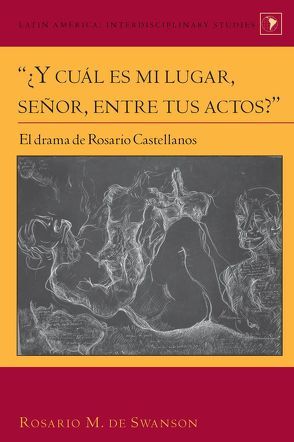 Young managers should respect the expertise of older employees and help enable their success, according to management faculty Cheryl Eaton. She was interviewed for an article in Business Insider, which was cited in the blog post “Simple Tips for Managing Older Employees.” One of the best ways to enable employee success is to ask how you can help them do their jobs better. “Listen rather than assuming you know best,” she says. “When that kind of respect is given, it is received.”
Young managers should respect the expertise of older employees and help enable their success, according to management faculty Cheryl Eaton. She was interviewed for an article in Business Insider, which was cited in the blog post “Simple Tips for Managing Older Employees.” One of the best ways to enable employee success is to ask how you can help them do their jobs better. “Listen rather than assuming you know best,” she says. “When that kind of respect is given, it is received.”
In April, visual arts faculty Cathy Osman, Tim Segar, and John Willis presented “Person to Person: Cambodia and Community,” a slideshow, discussion, and fundraiser at 118 Elliot Street, in Brattleboro. Since 2007, about 30 students have participated in four learning trips to Cambodia, where they have steadily built connections with two nonprofit organizations working for clean water and children’s education. With the help of Buddhist monks at the local pagodas they have sponsored and monitored clean water projects and established a small school. “We are humbled by the incredible determination and resilience we witnessed in the people of Cambodia, particularly the youth, who remain the focus of so much of our work there,” said Cathy.
Theater professor Brenda Foley has had a number of plays performed at theaters around the country recently: Protocol and It’s Not About the Crullers were both performed in Washington, D.C., and Camouflage was selected for the 20th Boston Theater Marathon and also chosen for inclusion in a joint project for the She Speaks Festival in Ontario and Paris. And Brenda’s new full-length play, Portraits, had an excerpt reading in New York City as part of her yearlong playwriting fellowship with Athena Theatre.
“It takes time. It takes effort,” President Kevin says about getting things done through Marlboro’s shared governance system. He was interviewed for an article in The Chronicle of Higher Education titled “A Primer for Nontraditional College Presidents.” Kevin says he has worked to engage and build trust with the faculty, and he has achieved a measure of peace with the governance system in which everyone on campus has a say in how the college operates. “You don’t always get the ideal outcome. I do think the outcome is better for having gone through the process, and it is much more likely to endure.”
 The newest book in management faculty Travis Hellstrom’s 52 Questions series was published last November, following on his 52 Questions for a Happy Friendship and 52 Questions for a Better Relationship. It’s called 52 Questions for Families, and includes a year’s worth of fun, thought-provoking conversation-starters to help readers learn more about their loved ones. “These books are designed to help anyone have a deeper conversation with people they love,” says Travis. “At Marlboro we love questions, so I hope these books help people communicate and enjoy making their interactions even more fun.”
The newest book in management faculty Travis Hellstrom’s 52 Questions series was published last November, following on his 52 Questions for a Happy Friendship and 52 Questions for a Better Relationship. It’s called 52 Questions for Families, and includes a year’s worth of fun, thought-provoking conversation-starters to help readers learn more about their loved ones. “These books are designed to help anyone have a deeper conversation with people they love,” says Travis. “At Marlboro we love questions, so I hope these books help people communicate and enjoy making their interactions even more fun.”
In April and May, religion professor Amer Latif conducted a series of lectures on Rumi for the Osher Lifelong Learning Institute of the University of Vermont. In a series titled Reading the Qur’an with Rumi, Amer discussed how the 13th-century Muslim contemplative, now one of the best-selling poets in America, considered Qur’an a map of the self. “Rumi interprets Qur’anic stories through telling tales of his own,” says Amer. “Using insights into the nature and function of stories from the cognitive and neurosciences, we examined how Rumi’s stories orient readers to take actions that can lead to a life of happiness and flourishing.”
In March, professor of painting Amy Beecher and visiting arts fellow David Eichelberger presented an exhibition of their work in Drury Gallery, as well as an artist’s talk. An interdisciplinary artist, Amy exhibited abstract digital paintings and photographs generated on a large-format ink-jet printer. Ceramist David exhibited recent clay vessels and wall pieces. As their joint exhibit and talk illustrated, both artists share an interest in medium specificity and attention to evolving technologies of expression.
“Teaching students about concepts is usually not adequate,” says TESOL faculty member Josh Kurzweil in a recent blog post about teaching adults English as a second language. “For many students to become more effective learners, they need to see, do, and reflect on the techniques in class. In this way, students can build habits of learning that make sense to them.” Josh has recently done teacher training with professors at the California College of Art as well as labor union instructors with Laborer’s International Union of North America and the Service Employees International Union. Read his blog post on Supporting Science of Learning in the Language Classroom.
“I was one of three men invited to a conference on the theme of The Women in the Buddha’s Life at Harvard in April,” says philosophy professor William Edelglass. In March, William was in India to give several talks and workshops, including a talk titled “That is Why the Buddha Laughs: Apophasis as Practice” at the K.J. Somaiya Centre for Buddhist Studies in Mumbai. While in India he was also able to attend a meeting of the Mind and Life Institute, a weeklong conversation between scientists and the Dalai Lama called Religion and Ritual: The Poetics and Performance of the Ineffable. William recently published a chapter titled “Buddhism, Happiness, and the Science of Meditation” in Meditation, Buddhism, and Science in Context: Humanistic Scholarship and the Scientific Study of Meditation, edited by David L. McMahan and Erik Braun (Oxford University Press). Learn more about the Mind and Life dialogs.
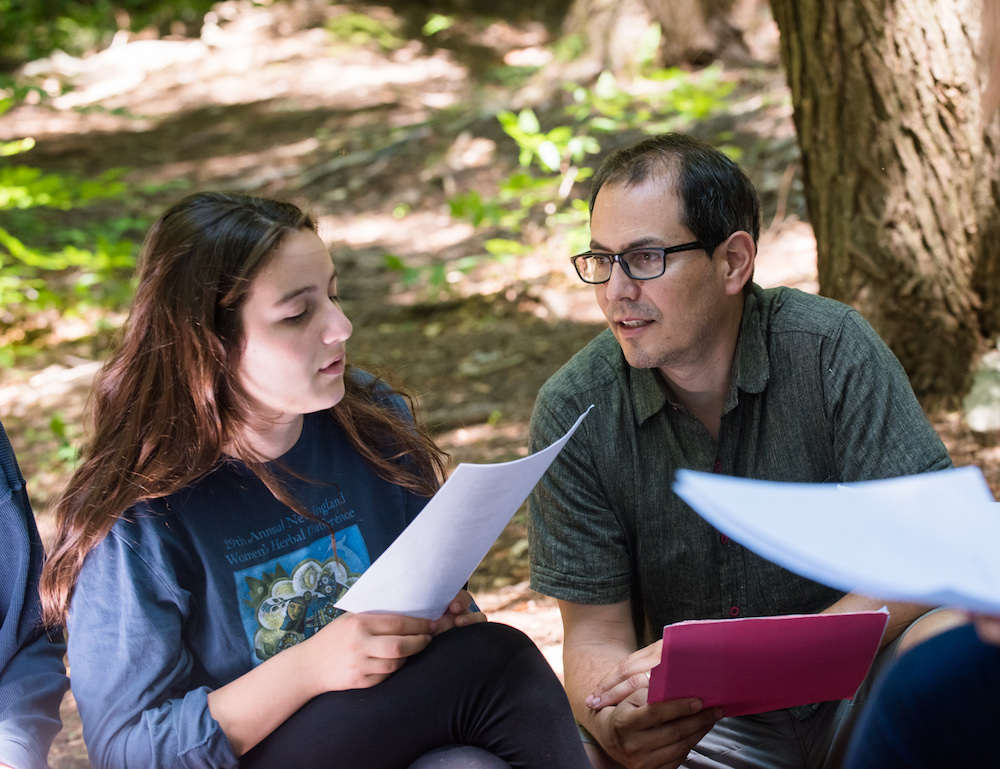 In August, theater professor Jean O’Hara presented on two panels at the Association for Theater in Higher Education conference in Boston. The first was a directing panel titled “Going from Protester to protestee: Who has the right to tell a story?” where Jean shared her experience with directing Didi and Gogo, an original adaptation of Waiting for Godot with two women of color in the lead roles. The second was an LGBT panel titled “Queering self/place/the everyday: Paving a path beyond heteronormativity?” where she shared the Drag: History, Politics, and Performance course that she co-taught with anthropology professor Nelli Sargsyan.
In August, theater professor Jean O’Hara presented on two panels at the Association for Theater in Higher Education conference in Boston. The first was a directing panel titled “Going from Protester to protestee: Who has the right to tell a story?” where Jean shared her experience with directing Didi and Gogo, an original adaptation of Waiting for Godot with two women of color in the lead roles. The second was an LGBT panel titled “Queering self/place/the everyday: Paving a path beyond heteronormativity?” where she shared the Drag: History, Politics, and Performance course that she co-taught with anthropology professor Nelli Sargsyan.
“The Exposures curriculum is now much more about understanding different cultural perspectives, and that ‘normal’ is a cultural construct,” said photography professor John Willis, who once again spent a month this summer with the cross-cultural youth arts program. “We use photography, writing, multimedia, and cross-cultural experience to understand and appreciate diversity.” Now in it’s 16th year, the Exposures program was initially launched by a group of John’s Plan students, and has employed several students and graduates over the years. This will be the first fall that one of the Lakota participants in the program will be enrolled as a new student at Marlboro College.
“The MAT in Teaching with Technology has had a remarkable, 20-year run of exceptional learning for ‘teachers who like to geek and geeks who like to teach,’” said Kate Jellema, dean of graduate and professional studies, reflecting on the discontinuation of that graduate specialization. “As degree chair for half of that run, Caleb Clark brought his love of technological innovation, together with a real gift for teaching and advising, and helped facilitate impressive student outcomes.” See one example of these outcomes on page 44, and many more at marlboro.edu/matgraduates. Marlboro will be honoring Caleb, and celebrating the MAT alumni community, at the Graduate and Professional Studies 20th Anniversary weekend.

